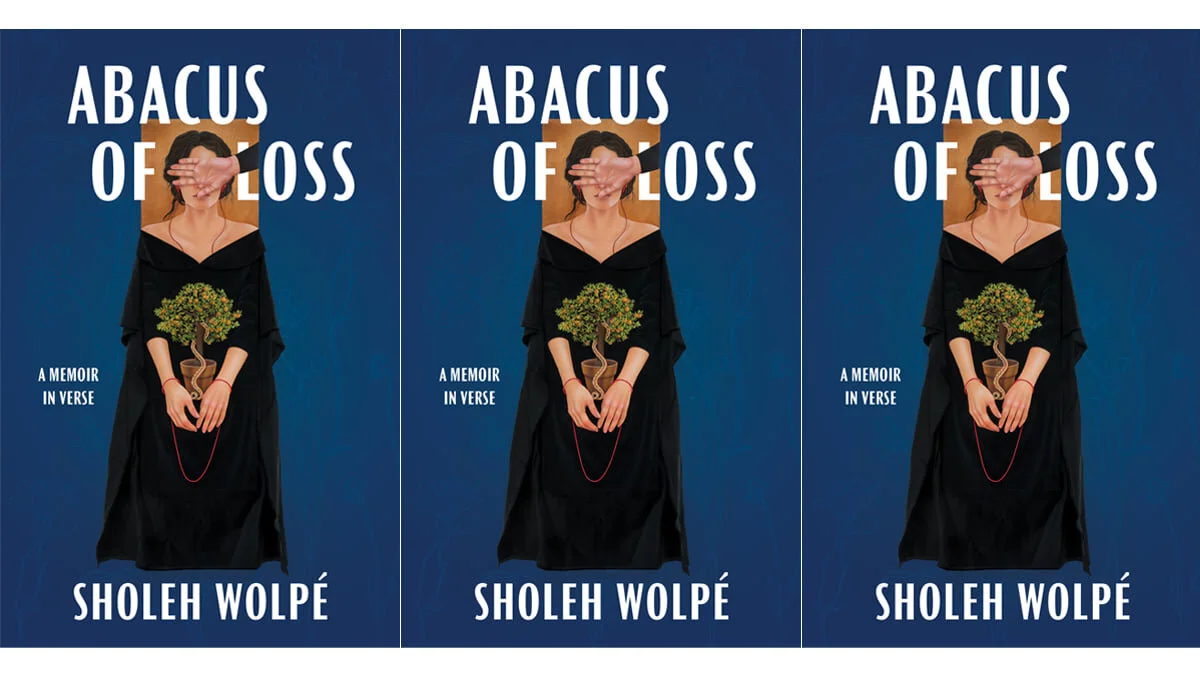March 2022
A Few Reviews :
PRISM INTERNATIONAL: An Instrument of Remembering: A Review of Sholeh Wolpé’s “Abacus of Loss”
The Markaz Review: Art of Remembrance in Abacus of Loss
The MarySue: 8+ Beautiful, Contemporary Novels Written in Verse That Make Poetry Accessible
Orion: 17 Poetry Collections to read during Women’s History Month
World Time Todays: Beautiful Contemporary Novels in Verse
“One of 8 Beautiful, Contemporary Novels Written in Verse That Make Poetry Accessible”
“’Exile is a suitcase with a broken strap,’ writes Sholeh Wolpé in this autobiographical story that takes us across borders of language and time, from ‘a hill high above Tehran’ to the valley in Los Angeles. It is a journey where—we soon learn—‘loss is a language’ and the ‘fastest way out of a labyrinth / is up.’ So much to love about this brave and musical storytelling. I for one admire how much Wolpé loves our days, how much tenderness and insight each moment’s turn offers. There is much gusto, too, and such style and verve. ‘Make my curly hair your flag,’ the poet tells us, as she guides us on the trip via ‘boats crusted with our stories.’ Abacus of Loss is a terrific book, one that created its own genre—a thrill of lyric combined with the narrative spell. Bravo!”
“The poet tallies her losses—loss of dear ones, loss of home and country, loss of language and faith. Yet, recollecting her life memory by memory, Sholeh Wolpé finds ways to love and to be thankful. She is truly a daughter of Rumi.””
“Sholeh Wolpé’s Abacus of Loss is a manual for living. How to stay permeable to wonder and joy in a world that so aggressively conspires against them? In a world that can be so corrosive to grace? In one poem Wolpé writes, ‘Our passports lie on the yellow Formica table / side by side, two countries at war.’ In another, ‘God is just a vagabond / peddling bombs and swords.’ There is a remarkable braid here of a woman’s journey through a world run by men drunk on their own power, through a cosmos governed by a God apparently hidden by his. Abacus of Loss is a remarkable achievement, an unforgettable text.”
“Loss fulfills the memoir’s promise to show us memory at work. The disjunctive, essayistic collage of moments feels more like the experience of memory than we are used to getting from conventional narrative prose. And like memory, it folds in on itself, as Wolpé’s investigation of loss shows us that, often, what has been lost is a past already suffused with a sense of loss. We mourn the young adulthood when we mourned the teenage years when we mourned our childhood when we mourned our lost innocence. A brilliant book.”
“Wolpé’s work as a librettist fuels the shape and feeling of this book—the movements, the varying tempos and paces, the sense of story, and the precision of language translate to a narrative that stirs us emotionally. Sometimes familiar, other times a blossoming, This book also serves as a master plan for a collection that both adheres to a story and provides beautifully differing poetic strategies. Abacus of Loss finds its way under your skin before you know it—bead by bead.”
“I am immersed in the narrator’s world, unwilling to leave...she unpacks the complexities of exile, home, family, love, and everything in between.”
“ Wolpé’s Abacus of Loss catches what’s torn up and battered by waves, giving the wrack back to the sands of time and memory.
One of 17 Poetry Collections to read during Women’s History Month”
“Defying patriarchal traditions and religious prohibitions courts upheaval and discord, but the compensating development of agency and the poet’s freedom to choose for herself how to live increase in strength and importance.”

